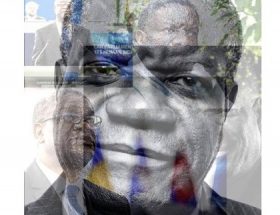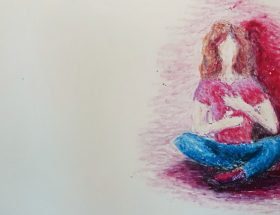It was on October 11, 2012, that the United Nations declared that from that day forward, October 11th would be recognized internationally as the Day of the Girl. In an effort to shine a light on the “needs and challenges girls face, while promoting girls’ empowerment and fulfilment of their human rights,” this day commemorates all the girls impacted by challenges that restrict them to equality, lack of resources, proper health care, education, etc. It’s been a long time coming that girls are recognized for the ways they have shaped the pathway towards change in our world. One prominent figure that most of the world has come to recognize and appreciate is 21-year-old Malala Yousafzai. Her story is one of resilience and power that continues to impact the role girls and women play in the world’s society in regards to education.
Malala was born on July 12, 1997 in Mingora, Pakistan. On the website set up in her name, she mentions that being born a girl in her country was not always a “cause for celebration,” yet her parents, especially her father vouched to be able to provide her with every opportunity a boy would have. He was a teacher and was the head of a girls’ school in their village in Swat Valley. It was through him that a love of learning and a passion for education was instilled.
In 2008, the Taliban rose to power in several regions of Pakistan, including Malala’s town in Swat Valley. It was during this time that her activism and voice began to be heard despite the several dangers she would be facing. She recalled that the Taliban would ban several things such as “owning a television and playing music.” She also noted that if anyone was found in possession of anything that was banned, severe punishments were enforced. It was in 2008 that Malala was forbidden from continuing to attend school and had to say goodbye to her classmates. In February 2009, girls were banned from attending school, thus depriving them of their basic right to education. Upset by this decision, Malala found it necessary to speak out against this ban as her education meant a lot to her. At this time, violence often broke out throughout her town and gunshots were often heard. Despite these politically difficult times, Malala and her family remained hopeful and continued to advocate for the right to education.
In September 2008, she addressed a crowd in Peshawar, Pakistan titling her speech, “How dare the Taliban take away my basic right to education?” Her activism progressed as she privately blogged under the pseudonym Gul Makai to write about “living under the Taliban’s threats to deny her an education.”
With growing attention, Malala’s name was beginning to be highly recognized and the Taliban began to notice. Through her activism on social media platforms like Facebook, she began to receive multiple death threats, thus sparking a fear in her for her father, who too spoke out against the Taliban to protect the right of education for girls. These threats eventually led to one directly issued by the Taliban. Despite the growing fear within her family, they were certain the Taliban wouldn’t intentionally harm a child.
However, their fears turned into a heartbreaking reality when, on October 9, 2012, Malala was shot on the left side of her head on her way home from school. Only 15 years old at the time, she was riding the bus home from school with other girls when a gunman got on and asked which one of them was Malala. With several girls glancing towards her, she was easily identified and targeted. Following the gunshot wound, her condition was so critical that a piece of her skull needed to be removed. In her dire state, she was transported to a hospital in Birmingham, England in order to provide her with further medical attention. It was after the attack that she unconsciously left all she knew and loved behind to begin a new life in an entirely different country. While initially paralyzed on her left side, Malala thankfully was left with no major brain damage. However, she underwent surgery that would help repair the damaged facial nerve.
As a result of everything that occurred, Malala received an overwhelming amount of love and support. Perhaps the most astonishing thing about her story is that instead of ceasing to speak on the issue of education, Malala felt more inspired and motivated to continue her activism. She was graceful and resilient in her recovery and did everything possible to continue her fight for education. It was in 2014, that with the help of her father, Malala was able to establish her own fund titled the “Malala Fund.” This charity would be “dedicated to giving every girl an opportunity to achieve a future she chooses.” Due to all her hard work and activism, it was also in 2014 that she was the youngest person ever to receive the highest honor of being awarded the Nobel Peace Prize in December.
Today, Malala is a student at Oxford University studying politics, economics and philosophy, devoted to continuing her activism. Malala continues to travel to several different countries to speak of this important basic right and has even addressed the United Nations in regards to providing women with at least 12 years of free basic education. More recently, after years of being unable to return to her home country, she was able to do so on March 29, 2018. During her trip, she was able to “inaugurate a school for girls being built with aid from Malala Fund.” Malala’s work is one that fights for the right to education and the right to equality. It is because of her many brave acts that she is widely recognized as a figure who has done a tremendous amount of work for girls and education. She is amongst one of many girls who have made a worldwide impact to improve the lives of girls and women. As her activism only continues to grow with her fearlessly fighting for the right to gender inclusive education, it is astounding to see how someone so young can be so relentlessly brave and resilient.
art by Desiree Finlayson.




